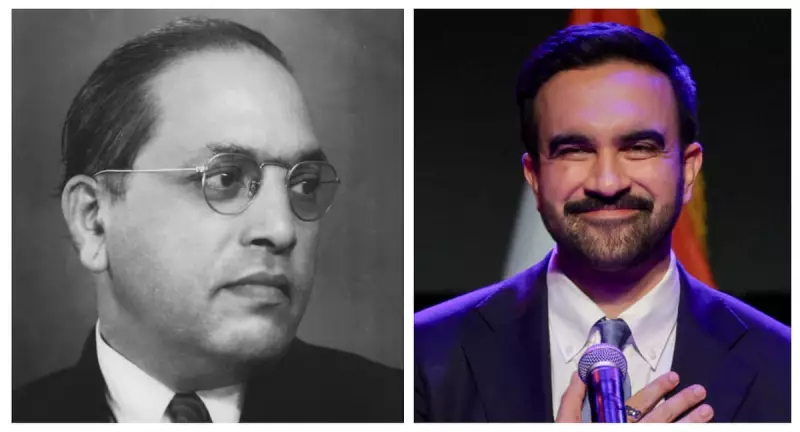
In a groundbreaking examination of political thought, two towering intellectual figures—B.R. Ambedkar and Mahmood Mamdani—offer a transformative approach to Indian politics that moves beyond conventional frameworks of caste and capital. Their revolutionary perspectives challenge the very foundations of how we understand power, inequality, and social transformation.
The Limitations of Traditional Political Frameworks
Contemporary Indian political discourse often finds itself trapped in binary debates between caste-based politics and class-based analyses. Both approaches, while valuable in their own right, fail to capture the complex reality of social hierarchy and economic exploitation that characterizes Indian society. Ambedkar's profound insights into the caste system combined with Mamdani's global perspective on political identity create a powerful synthesis.
Ambedkar's Revolutionary Perspective
Dr. B.R. Ambedkar, the principal architect of India's Constitution, understood that the caste system represented more than just social hierarchy—it was a comprehensive political and economic structure that required radical dismantling. His vision extended beyond mere reservation policies or symbolic representation to demand fundamental restructuring of social relations.
Ambedkar recognized that political democracy without social democracy was meaningless. His famous warning about the contradictions in India's social structure continues to resonate today, as formal political equality coexists with deep-seated social and economic inequalities.
Mamdani's Global Context
Mahmood Mamdani, the renowned Ugandan academic, brings a crucial comparative dimension to this discussion. His work on how colonial powers created and institutionalized ethnic and racial identities provides valuable insights for understanding the construction and perpetuation of caste in India.
Mamdani's concept of the "subject" and "citizen" helps illuminate how certain groups are systematically excluded from full political participation, mirroring Ambedkar's analysis of how caste creates permanent minorities within the democratic framework.
A New Political Imagination
The convergence of Ambedkar and Mamdani's thought points toward a politics that transcends both identity-based claims and purely economic redistributive demands. This approach recognizes that:
- Caste cannot be reduced to class, nor can class analysis fully explain caste
- Political solutions must address both recognition and redistribution
- Democratic participation requires dismantling all forms of institutionalized hierarchy
- Global perspectives can illuminate local struggles
This integrated framework offers a way out of the current impasse in Indian politics, where caste-based parties often reinforce identity politics while leftist movements frequently ignore the specificities of caste oppression.
Contemporary Relevance
In today's India, where economic liberalization has created new forms of inequality while old hierarchies persist, the Ambedkar-Mamdani synthesis provides crucial tools for understanding and transformation. Their combined insights help us see how capitalism and caste can reinforce each other, creating complex systems of exclusion and exploitation.
The challenge for contemporary political movements is to build coalitions that can simultaneously address economic injustice and social hierarchy, creating what Ambedkar might have called a truly "democratic society" rather than merely a "democratic polity."
This vision of politics beyond capital and caste represents not just an academic exercise but an urgent necessity for building a more just and equal India. As both thinkers remind us, the struggle for true democracy requires constant vigilance against all forms of domination, whether based on birth, wealth, or power.






